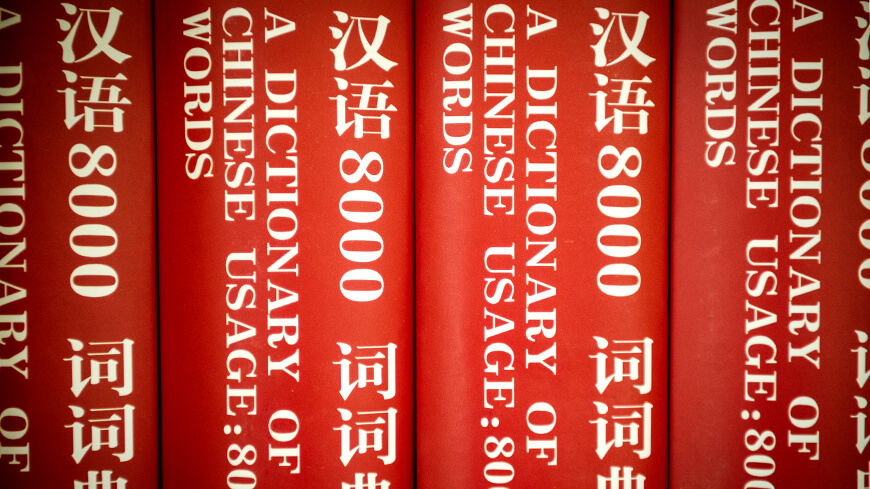Chinese proficiency tests

DMU CI is a registered Test Centre for Chinese Proficiency Tests including HSK, HSKK, YCT and BCT.
If you have any questions, please contact: CI@dmu.ac.uk.
Step One
Register on http://www.chinesetest.cn/
- Choose “Confucius Institute of De Montfort University” as the test centre.
- Please note down the username and password as you will need it to log onto this webpage in a later stage to print off your test admission ticket and to check your result.
Step Two
Make an online payment via DMU online store (please see below the table for the fees).
Step Three
Receive the confirmation and admission ticket by email around 10 days prior to the test date.
Please note: registration will close 28 days before the test date.
|
HSK
(Paper-based) |
HSK 1
£10 |
HSK 2
£20 |
HSK 3
£30 |
HSK 4
£40 |
HSK 5
£50 |
HSK 6
£60 |
| HSK (Internet-based) |
HSK 1
£10 |
HSK 2
£20 |
HSK 3
£30 |
HSK 4
£40 |
HSK 5
£50 |
HSK 6
£60 |
| HSKK (Speaking test) |
HSKK Basic
£15 |
HSKK Intermediate
£25 |
HSKK Advanced
£35 |
|
YCT
(Writing test) |
YCT 1
£5 |
YCT 2
£10 |
YCT 3
£20 |
YCT 4
£25
|
About Chinese Proficiency Tests:
Chinese Proficiency Test (HSK) is an international standardised test of Chinese language proficiency that assesses non-native Chinese speakers’ ability in using the Chinese language in their daily, academic and professional lives. The tests assess a variety of language skills including writing, listening and reading. HSK consists of six levels, HSK Level I to HSK Level 6.
The table below shows the level of vocabulary expected, test duration and score and the correlation between HSK and Chinese Language Proficiency Scales for Speakers of Other Languages (CLPS) and the Common European Framework of Reference (CEF):
| |
Vocabulary (words)
|
Test duration (min)
|
Total Score
|
Passing Score
|
CEF
|
CLPS
|
|
HSK Level 1
|
150
|
40
|
200
|
120
|
A1
|
Level I
|
|
HSK Level 2
|
300
|
55
|
200
|
120
|
A2
|
Level II
|
|
HSK Level 3
|
600
|
90
|
300
|
180
|
B1
|
Level III
|
|
HSK Level 4
|
1200
|
105
|
300
|
180
|
B2
|
Level IV
|
|
HSK Level 5
|
2500
|
125
|
300
|
180
|
C1
|
Level V
|
|
HSK Level 6
|
5000
|
140
|
300
|
180
|
C2
|
HSK Speaking Test (HSKK)
Assesses the test takers’ oral Chinese ability. HSKK consists of three levels, HSKK (Primary level), HSKK (Intermediate level) and HSKK (Advanced level). HSKK is conducted in the form of audio recording.
The table below shows the correlations between HSK and HSKK, as well as the test duration:
| |
General Correlations to HSK
|
Test Duration
(minutes)
|
Total Score
|
Pass
Score
|
|
HSKK Basic
|
HSK Level 1 and Level 2
|
20
|
100
|
60
|
|
HSKK Intermediate
|
HSK Level 3 and Level 4
|
23
|
100
|
60
|
|
HSKK Advanced
|
HSK Level 5 and Level 6
|
25
|
100
|
60
|
Youth Chinese Test (YCT)
An international standardised test of Chinese language proficiency, assessing primary and middle school students' ability to use Chinese as a second language in their daily and academic lives. YCT is divided into writing and speaking tests, which are independent to each other. The writing test consists of four levels, YCT Level I-IV. The speaking test consists of two levels, YCT Speaking (Primary Level) and YCT Speaking (Intermediate Level).
Business Chinese Test (BCT)
An international standardised test of Chinese language proficiency, assessing non-native Chinese speakers’ ability to use Chinese language in real business or common working environments. BCT is divided into writing and oral tests, which are independent to each other. The writing test consists of two levels, BCT (A) and BCT (B). BCT (Oral iBT) are Computer Adaptive Tests (CAT) and conducted online.
There are also graded vocabulary, released texts and mock tests.